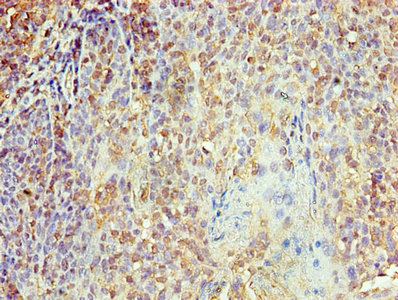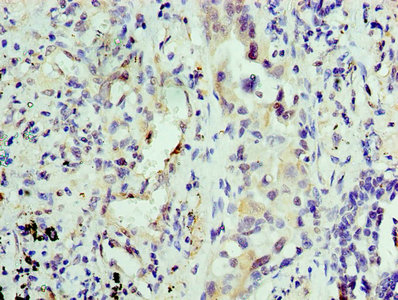Full Product Name
Rabbit anti-Homo sapiens (Human) KPNA1 Polyclonal antibody
Alternative Names
IMA5_HUMAN antibody; Importin alpha 1 subunit antibody; Importin alpha 5 antibody; Importin alpha S1 antibody; Importin subunit alpha-5; N-terminally processed antibody; IPO A5 antibody; IPOA 5 antibody; IPOA5 antibody; Karyopherin alpha 1 antibody; Karyopherin alpha 1 subunit antibody; Karyopherin subunit alpha-1 antibody; KPNA 1 antibody; KPNA1 antibody; mSRP 1 antibody; mSRP1 antibody; NPI 1 antibody; NPI-1 antibody; NPI1 antibody; Nucleoprotein interactor 1 antibody; RAG cohort protein 2 antibody; RCH 2 antibody; RCH2 antibody; Recombination activating gene cohort 2 antibody; SRP 1 antibody; SRP1 beta antibody; SRP1-beta antibody
Immunogen
Recombinant Human Importin subunit alpha-5 protein (8-538AA)
Immunogen Species
Homo sapiens (Human)
Conjugate
Non-conjugated
The KPNA1 Antibody (Product code: CSB-PA012483LA01HU) is Non-conjugated. For KPNA1 Antibody with conjugates, please check the following table.
Available Conjugates
| Conjugate |
Product Code |
Product Name |
Application |
| HRP |
CSB-PA012483LB01HU |
KPNA1 Antibody, HRP conjugated |
ELISA |
| FITC |
CSB-PA012483LC01HU |
KPNA1 Antibody, FITC conjugated |
|
| Biotin |
CSB-PA012483LD01HU |
KPNA1 Antibody, Biotin conjugated |
ELISA |
Purification Method
>95%, Protein G purified
Concentration
It differs from different batches. Please contact us to confirm it.
Buffer
Preservative: 0.03% Proclin 300
Constituents: 50% Glycerol, 0.01M PBS, PH 7.4
Tested Applications
ELISA, IHC
Recommended Dilution
| Application |
Recommended Dilution |
| IHC |
1:20-1:200 |
Storage
Upon receipt, store at -20°C or -80°C. Avoid repeated freeze.
Lead Time
Basically, we can dispatch the products out in 1-3 working days after receiving your orders. Delivery time maybe differs from different purchasing way or location, please kindly consult your local distributors for specific delivery time.
Usage
For Research Use Only. Not for use in diagnostic or therapeutic procedures.






